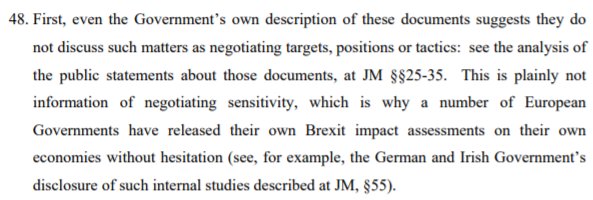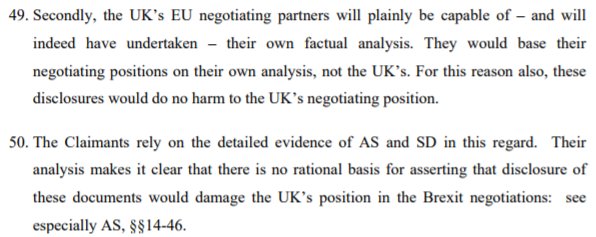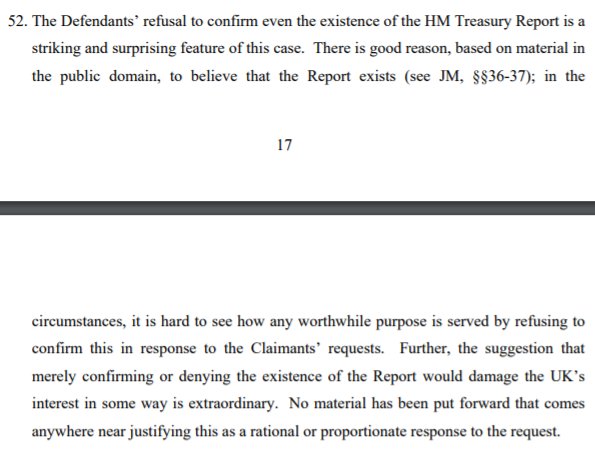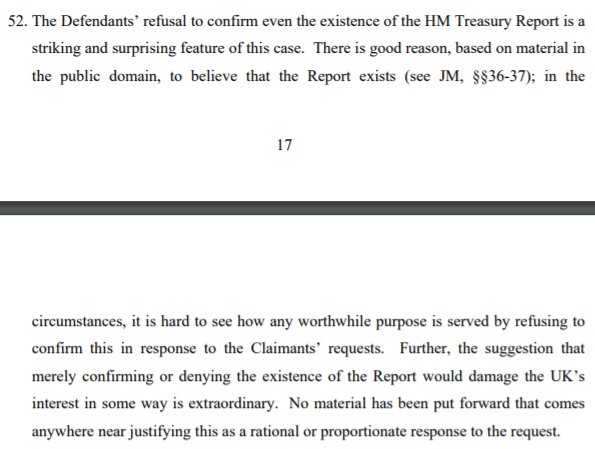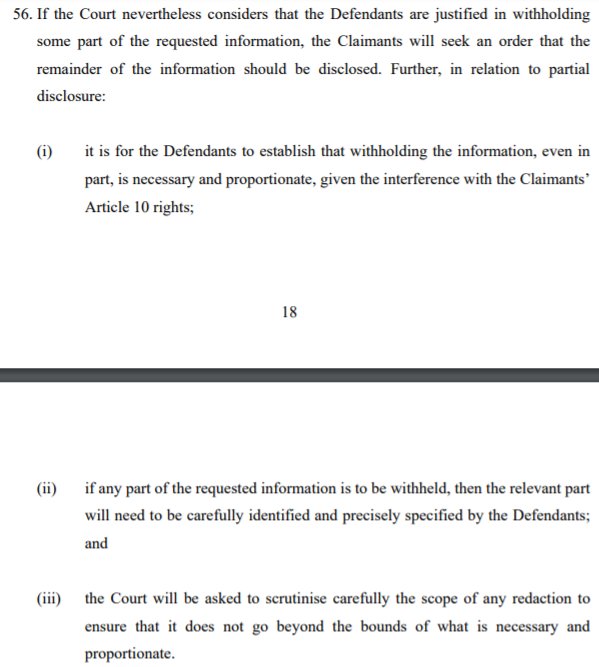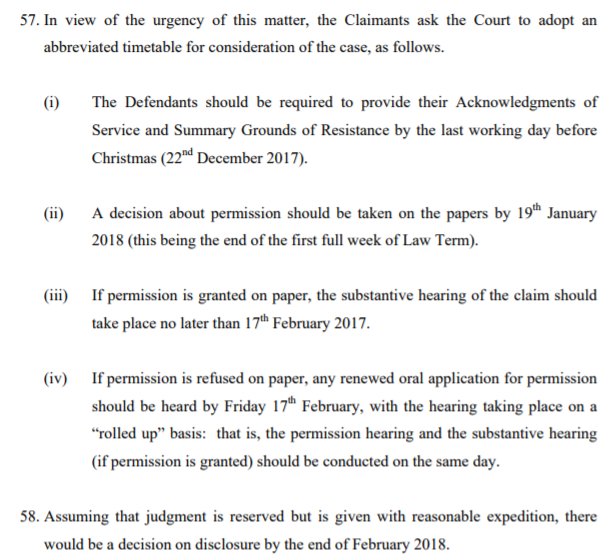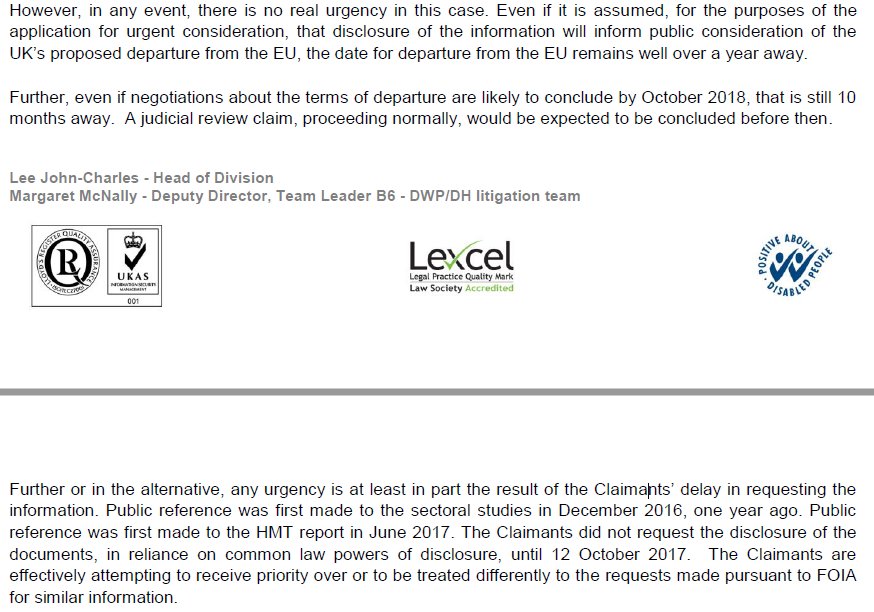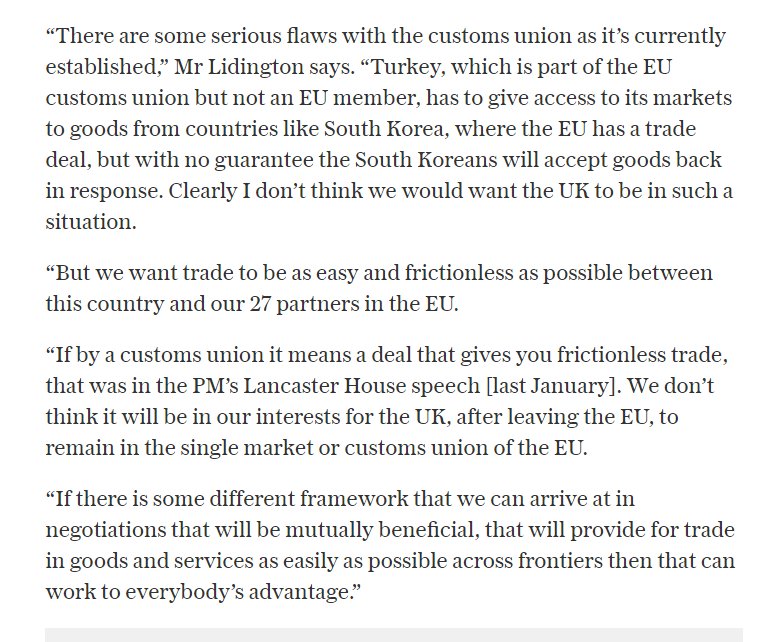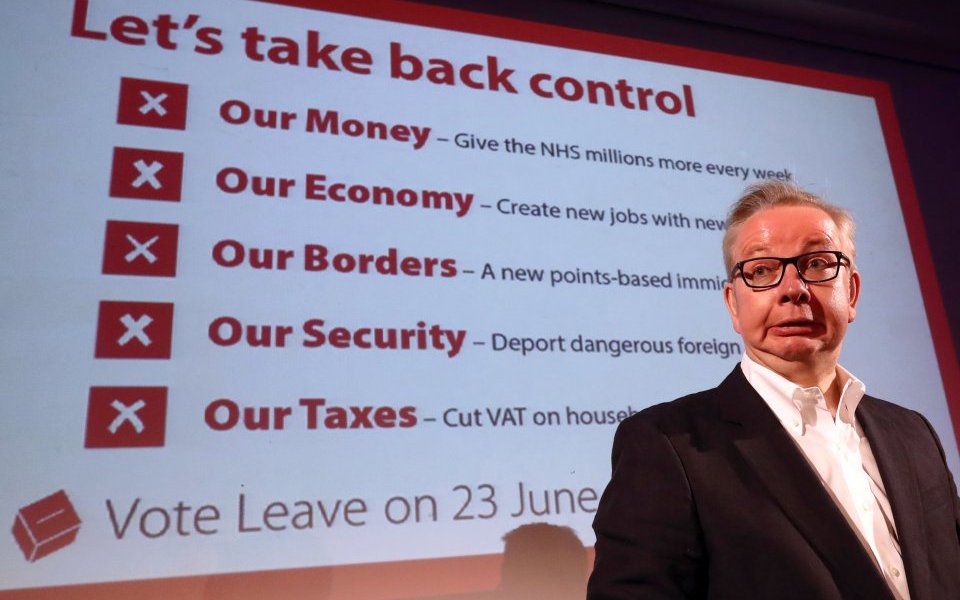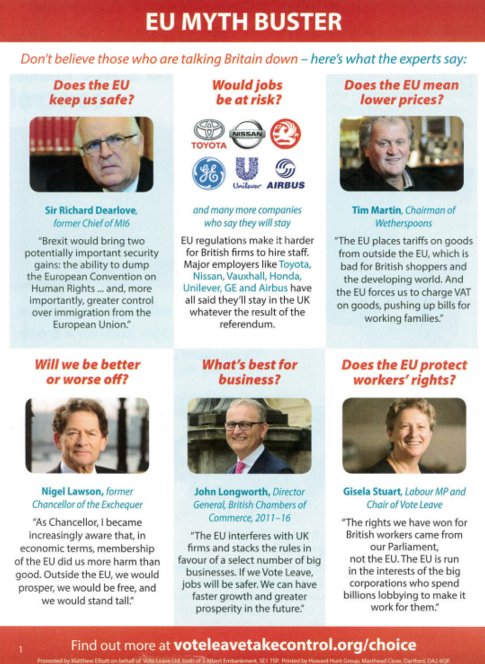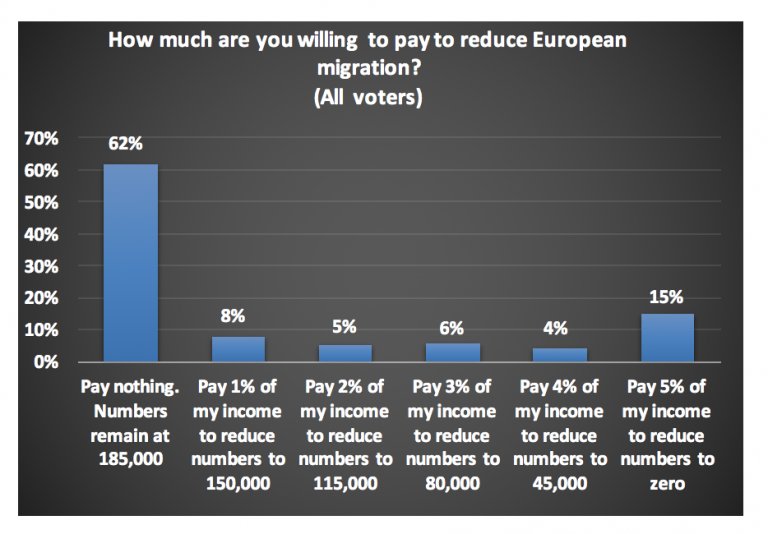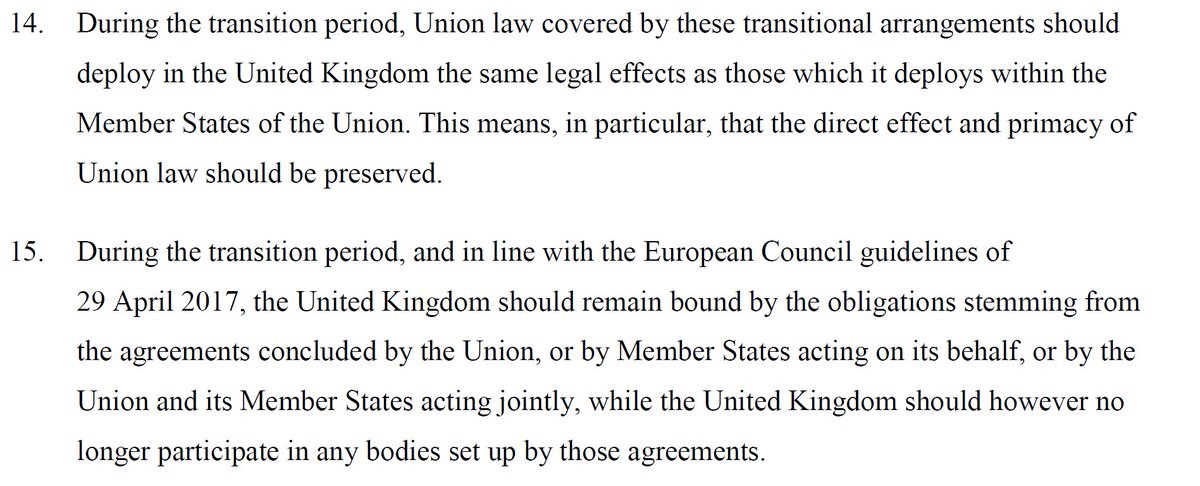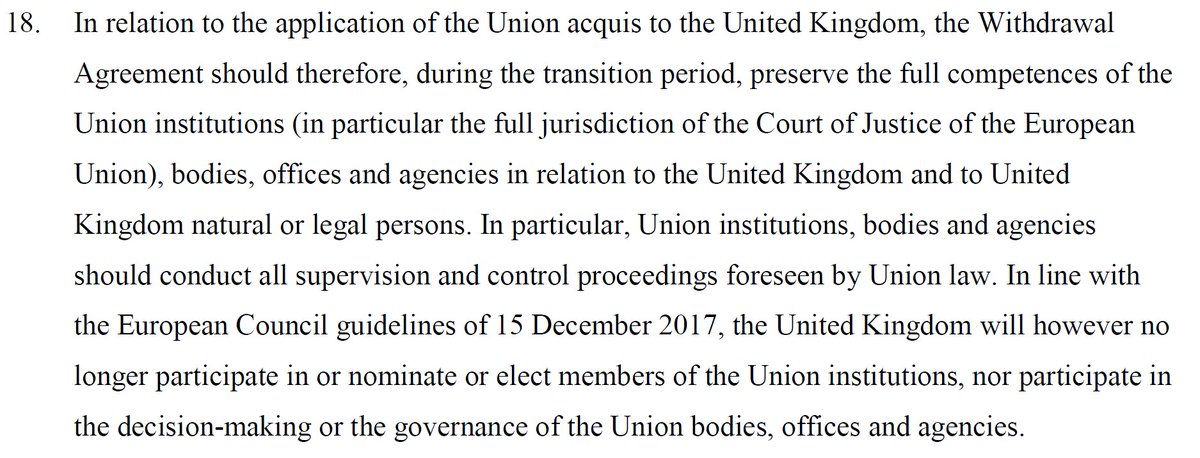
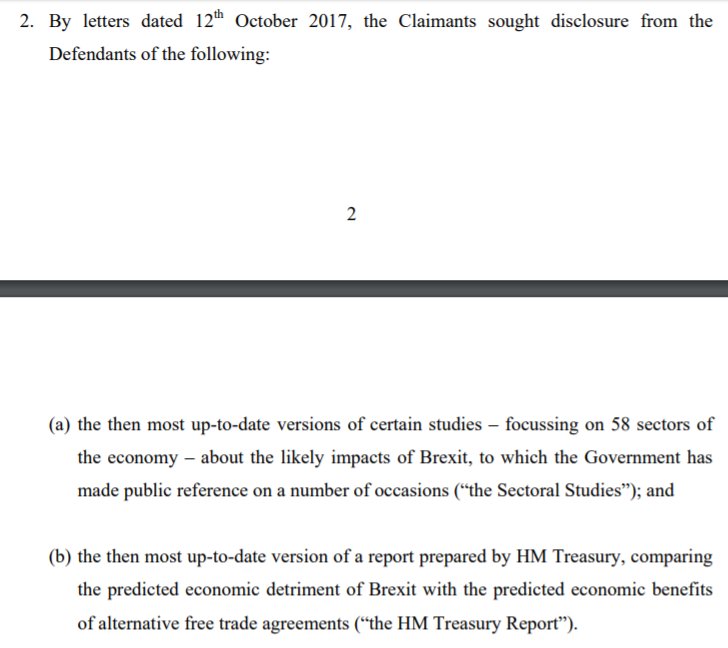
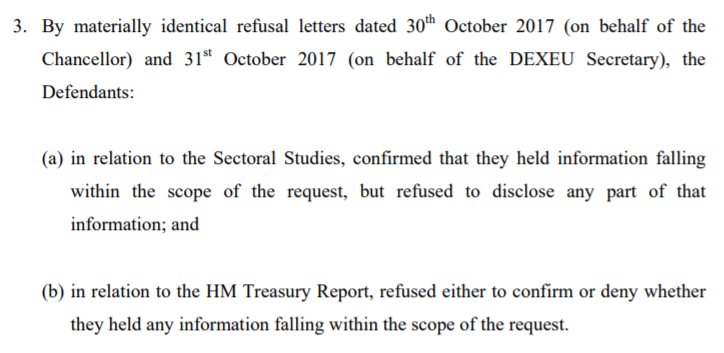
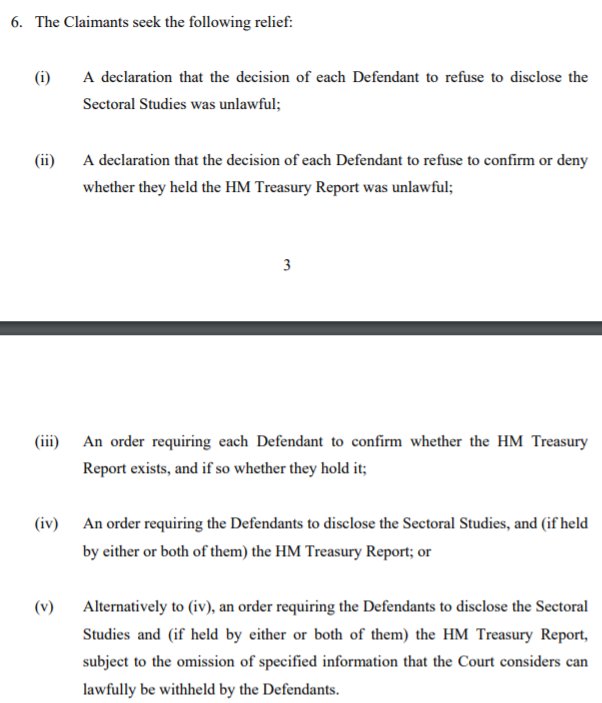
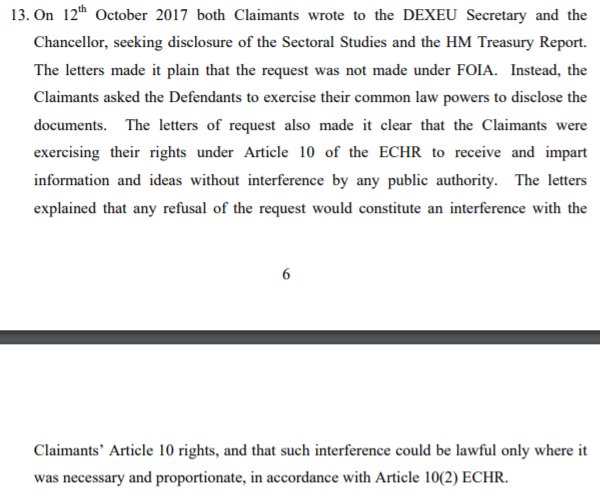

First we say, that the Government *could* disclose the documents even if the FOIA did not exist. And we must be able to ask it to disclose without using its FOIA powers. /10
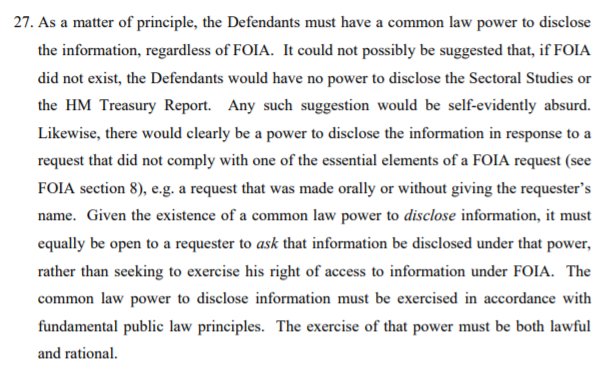
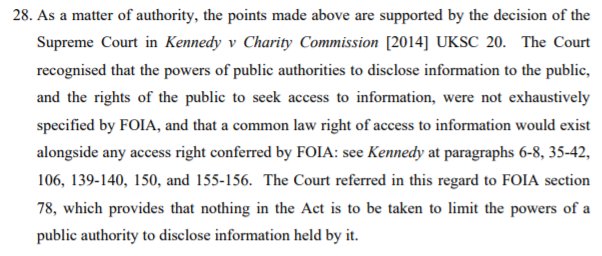
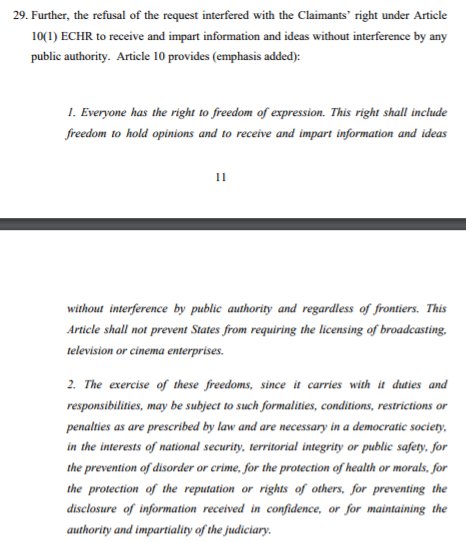
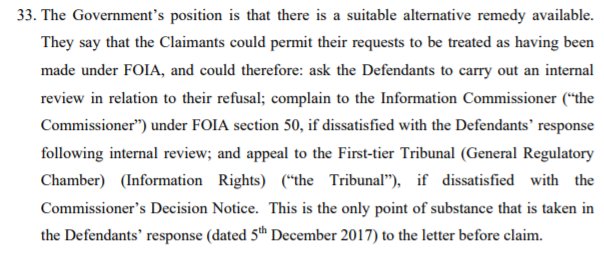
(You learn, as you get older, that if your arguments are based on commonsense they are more likely to be right). /14
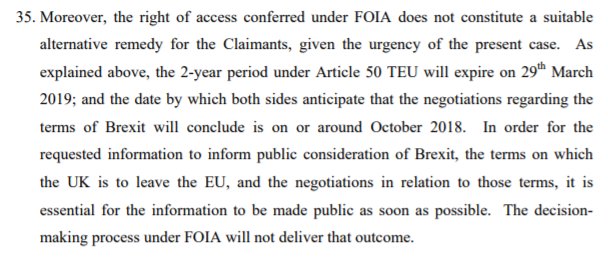
We say that the Government, by failing even to consider whether the common law and Article 10 criteria are met, has behaved unlawfully in refusing our requests. /15
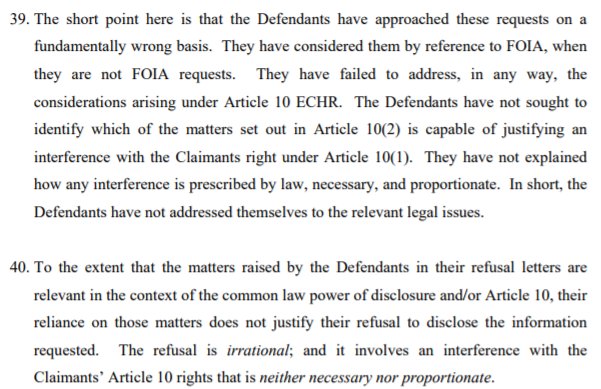
We go on to talk about what we say are the reasons why, if the Government did consider the common law and Article 10 criteria, it would be obliged to disclose the documents. We say the public interest is exceptionally strong. /16
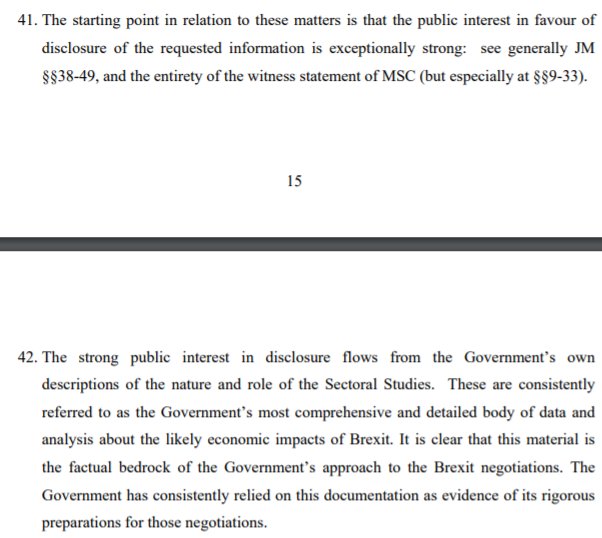
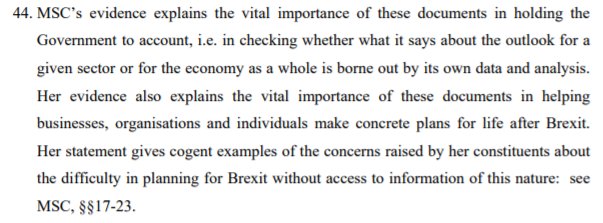
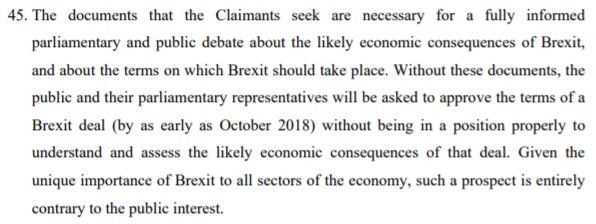
First, they don't discuss our negotiating position, They just inform it. We point out many other European governments have released this information. /19
